Most Popular
-
1
Industry experts predicts tough choices as NewJeans' ultimatum nears

-
2
Jung's paternity reveal exposes where Korea stands on extramarital babies

-
3
Samsung entangled in legal risks amid calls for drastic reform

-
4
Heavy snow alerts issued in greater Seoul area, Gangwon Province; over 20 cm of snow seen in Seoul

-
5
[Herald Interview] 'Trump will use tariffs as first line of defense for American manufacturing'
![[Herald Interview] 'Trump will use tariffs as first line of defense for American manufacturing'](//res.heraldm.com/phpwas/restmb_idxmake.php?idx=644&simg=/content/image/2024/11/26/20241126050017_0.jpg&u=20241126161719)
-
6
Agency says Jung Woo-sung unsure on awards attendance after lovechild revelations

-
7
[Herald Review] 'Gangnam B-Side' combines social realism with masterful suspense, performance
![[Herald Review] 'Gangnam B-Side' combines social realism with masterful suspense, performance](//res.heraldm.com/phpwas/restmb_idxmake.php?idx=644&simg=/content/image/2024/11/25/20241125050072_0.jpg&u=)
-
8
[Health and care] Getting cancer young: Why cancer isn’t just an older person’s battle
![[Health and care] Getting cancer young: Why cancer isn’t just an older person’s battle](//res.heraldm.com/phpwas/restmb_idxmake.php?idx=644&simg=/content/image/2024/11/26/20241126050043_0.jpg&u=20241126145342)
-
9
Prosecutors seek 5-year prison term for Samsung chief in merger retrial

-
10
UN talks on plastic pollution treaty begin with grim outlook

-
BOK keeps key rate at record low as pandemic persists
South Korea's central bank on Friday held its policy rate unchanged at a record low of 0.5 percent, as the fallout from a third wave of the new coronavirus hurt the scope of maintaining an economic recovery. As widely expected, the monetary policy board of the Bank of Korea (BOK) voted to leave the base rate steady in this year's first rate-setting meeting. In November last year, the BOK froze the key rate as economic uncertainty heightened amid a flare-up in new coronavirus cases. To bolster
Jan. 15, 2021
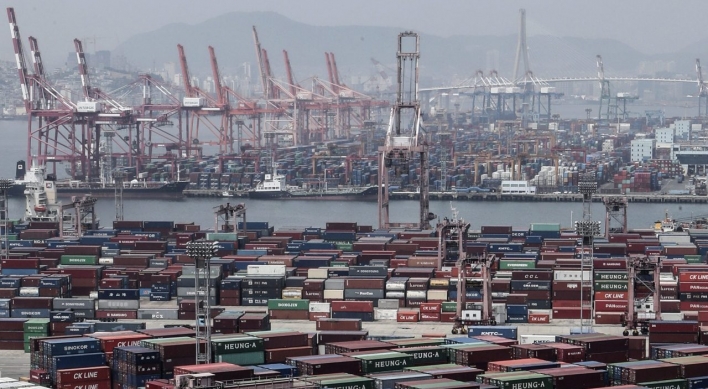
-
S. Korea puts priority on increasing home supply to ease housing crunch
South Korea will put priority on increasing housing supply by lowering construction regulations in the densely populated urban area and supporting redevelopment projects to stabilize the housing market, the finance minister said Friday. Finance Minister Hong Nam-ki said housing stability is one of the government's most pressing tasks, vowing to make use of all available policy measures to rein in the heated market. "The government will put priority on supplying new housing units this year
Jan. 15, 2021
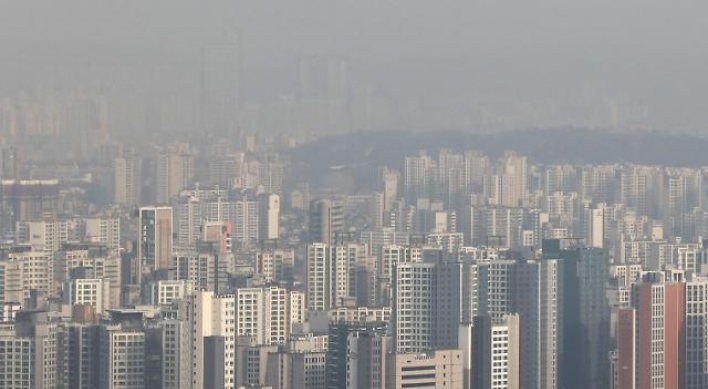
-
[News Focus] Nonregular jobs growth fastest in Moon strongholds
SEJONG -- The number of nonregular employees in South Korea came to 7.4 million as of 2020, which made up 36.3 percent of the country’s 20.4 million salaried employees, Statistics Korea data showed. Job statuses in the nation are commonly divided into regular jobs with permanent contracts and strong protections for workers, and nonregular jobs such as temporary jobs, contract jobs and other forms of works with lower job security. Compared to 32.4 percent in 2015 during the previous Park
Jan. 14, 2021
![[News Focus] Nonregular jobs growth fastest in Moon strongholds](//res.heraldm.com/phpwas/restmb_idxmake.php?idx=652&simg=/content/image/2021/01/14/20210114000001_0.jpg&u=20210114164343)
-
Banks' household loans grow by most in 2020
South Korean banks' household loans increased by the most last year, fueled by demand for home-backed lending and overdrafts for stock and property investments, central bank data showed Thursday. Outstanding bank loans to local households came to 988.8 trillion won ($896 billion) as of end-December, up 100.5 trillion won from the previous year, according to the data from the Bank of Korea (BOK). It marked the largest on-year gain since 2004, when the central bank began compiling related data.
Jan. 14, 2021
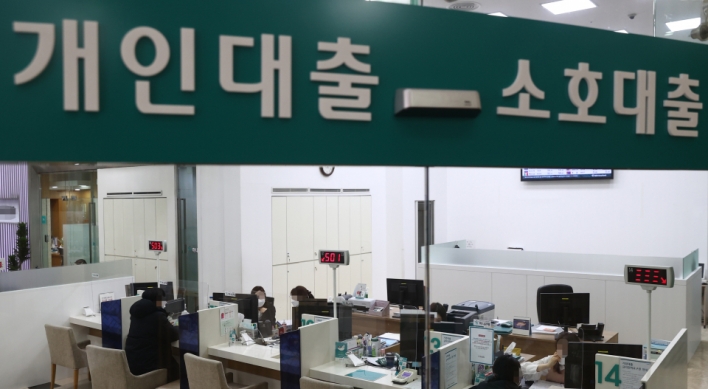
-
Banks' loan delinquency rate remains unchanged in Nov.
The delinquency rate for South Korean banks' won-denominated loans remained flat in November from the previous month, the financial regulator said Thursday. The rate for bank loans more than 30 days overdue stood at 0.34 percent at the end of November, unchanged from the previous month, according to the Financial Supervisory Service (FSS). Compared with a year earlier, the bank loan delinquency rate was down 0.14 percentage point. Banks' loan delinquency rate remains stable mainly because the
Jan. 14, 2021
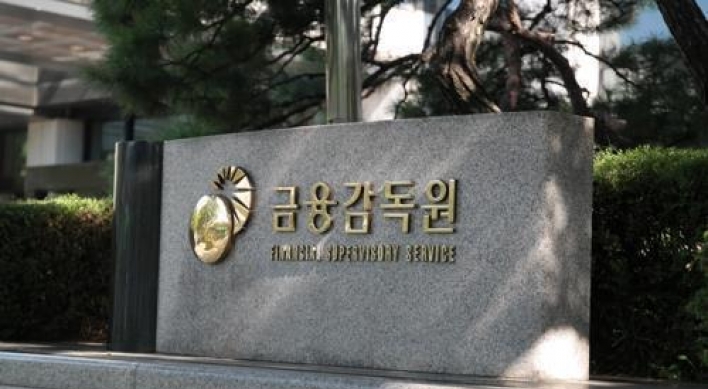
-
Bond, CD issuance in S. Korea surges 16% in 2020
Sales of bonds and certificates of deposits (CDs) in South Korea swelled more than 16 percent in 2020 from a year earlier, data showed Thursday. The value of those debt instruments issued last year came to 454.4 trillion won ($414 billion), up 16.2 percent from a year earlier, according to the data from the Korea Securities Depository (KSD). Bond sales surged 19 percent on-year to 429.9 trillion won, while CD issuance sank 20 percent to 24.5 trillion won. Sales of special bonds floated by sta
Jan. 14, 2021
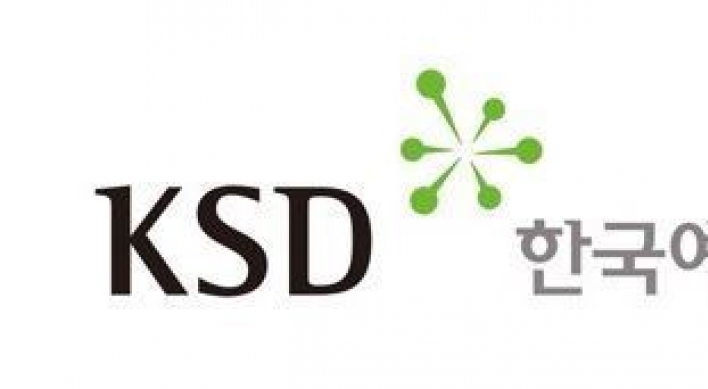
-
S. Korea's export prices down for 5th straight month in December
South Korea's export prices fell for the fifth consecutive month in December last year as the local currency continued to strengthen against the US dollar, central bank data showed Thursday. The country's export price index, in terms of the local currency, declined 0.1 percent in December from the previous month, according to the preliminary data from the Bank of Korea (BOK). The reading marked the fifth consecutive month of on-month decline after the index rose for the third month in a row in
Jan. 14, 2021
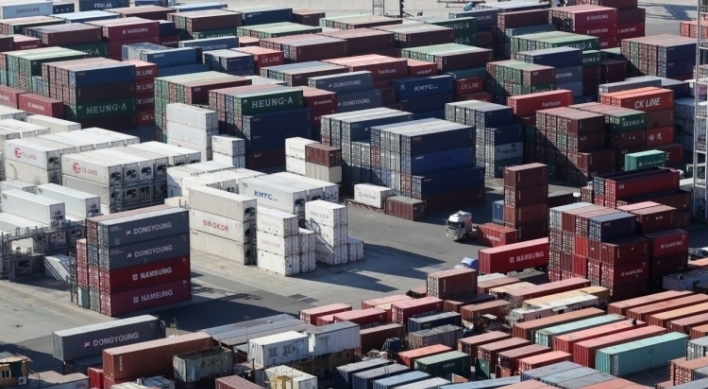
-
South Korean job losses hit 22-year high amid pandemic
South Korea’s economy last year suffered its worst year for job losses in 22 years, as companies of all sizes struggled to keep employees in the face of the prolonged pandemic, data showed Wednesday. According to Statistics Korea, the number of employed people here came to 26.9 million last year, down 218,000 from a year earlier, as hotels and restaurants slashed employment. The largest annual job loss on record was 1.27 million jobs in 1998, when the 1997-98 Asian financial crisis took
Jan. 13, 2021
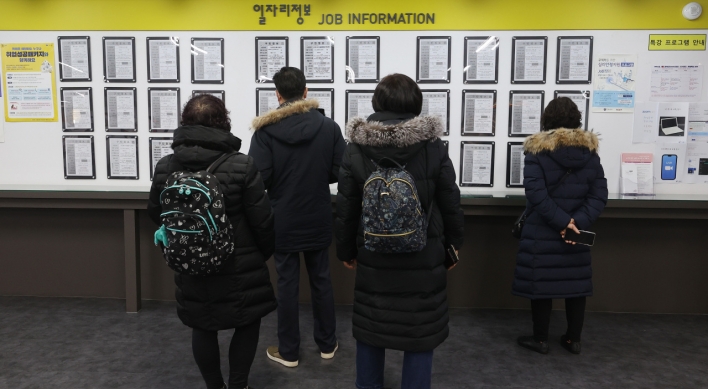
-
S. Korea to sell W8tr of Treasury bills through Feb.
South Korea plans to sell a total of 8 trillion won ($7.3 billion) worth of Treasury bills in the first two months of the year to fund its expansionary fiscal policy, the finance ministry said Wednesday. The ministry plans to issue 2 trillion won in bills with a maturity of 63 days this month, and the remaining 6 trillion won will be floated next month, according to the Ministry of Economy and Finance. Treasury bills are usually floated to raise money to cover short-term financial shortfalls a
Jan. 13, 2021
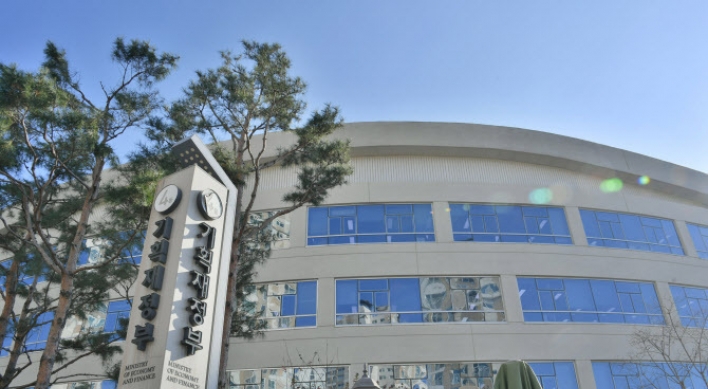
-
S. Korea to inject W30tr into green energy exports
Seeking to boost a green-led economic recovery in the post-pandemic era, South Korea’s government vowed Wednesday to spend 30 trillion won ($27.39 billion) to support local exports of renewable energy and other clean technologies. “South Korea should take a lead in the global market for green and digital businesses by embracing the ongoing paradigm shift to a green and digital economy triggered by the COVID-19 pandemic,” Deputy Prime Minister and Finance Minister Hong Nam-ki s
Jan. 13, 2021
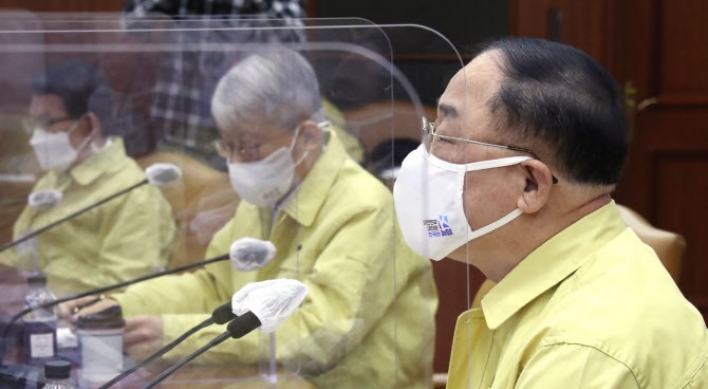
-
Value of newly listed bonds soars 24% in 2020
The value of listed bonds in South Korea jumped nearly 24 percent on-year to a new record high in 2020 due to a spike in government debt sale to tackle the coronavirus impact, data showed Wednesday. State, corporate and other bonds worth 769 trillion won ($702 billion) were newly listed on the local bourse last year, up 23.7 percent from the previous year and the largest ever, according to the data from the Korea Exchange. The jump came as the government sharply increased debt sales to finance
Jan. 13, 2021
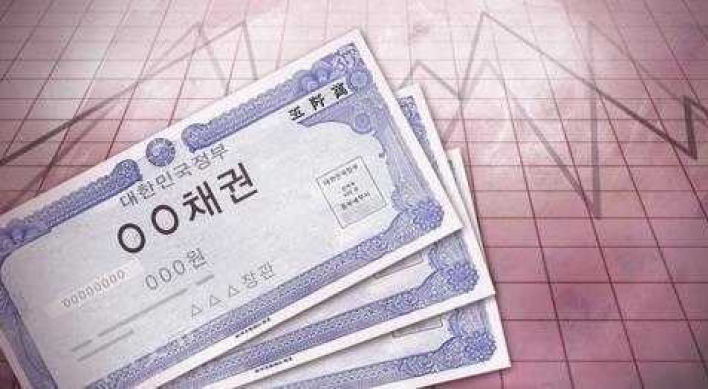
-
Demographic shifts urge Korean insurers to adapt: Moody’s
The looming demographic shifts in South Korea are forcing domestic insurers to turn to new growth drivers, as the companies are likely to face flagging sales of their mainstream products and underwriting risks of their new products that lead to inadequate pricing, a report showed Wednesday. The report by Moody’s Investors Service cited Korea‘s fast aging population as a key attribute, adding that the working-age population is being met with a heavy financial burden to support the c
Jan. 13, 2021
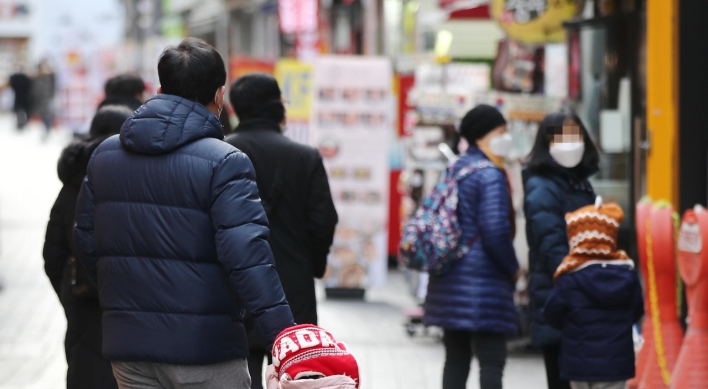
-
S. Korea's agricultural exports up 7.7% to record high in 2020 amid pandemic
South Korea's exports of agricultural and livestock products advanced 7.7 percent on-year in 2020 on the back of growing demand for healthier foodstuffs amid the new coronavirus pandemic, data showed Wednesday. Outbound shipments of such goods reached a record high of $7.5 billion last year, compared with $7 billion posted in 2019, according to the data compiled by the Ministry of Agriculture, Food and Rural Affairs. Exports of ginseng jumped 9.3 percent to reach $229.8 million over the period
Jan. 13, 2021
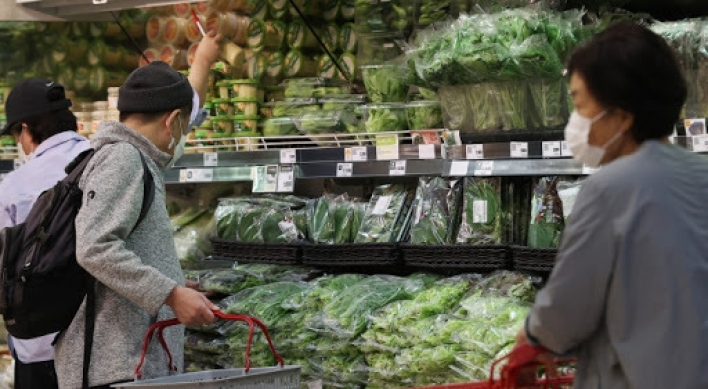
-
S. Korea to invest over W380b in smart farm tech through 2027
South Korea's ICT ministry said Wednesday it will invest 386.7 billion won ($353.3 million) to develop smart farms over the next seven years as part of the country's efforts to introduce new technology to the agriculture sector. The Ministry of Science and ICT said it launched a foundation to research and test next-generation smart farm technology, such as big data and artificial intelligence, to develop automated farms with improved productivity and produce quality. The foundation, jointly op
Jan. 13, 2021
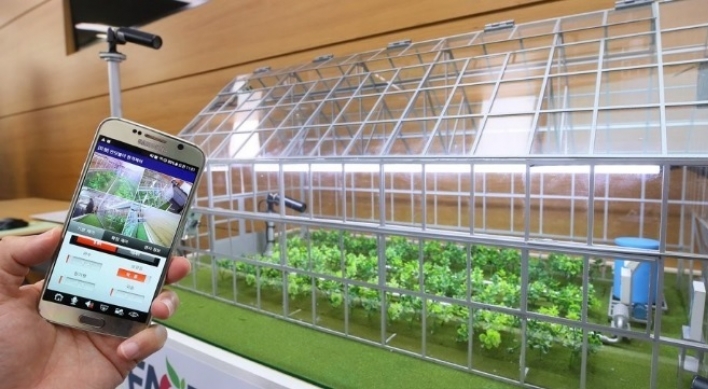
-
Dec. job loss largest in over 2 decades amid pandemic
South Korea reported the largest job loss in December since 1999 as a resurgence in new coronavirus cases dealt a blow to jobs in the service sector, data showed Wednesday. For the whole of 2020, the country also shed the largest number of jobs since 1998, when the country was in the midst of the 1997-98 Asian financial crisis, according to Statistics Korea. The number of employed people reached 26.5 million last month, 628,000 fewer than a year earlier and marking the 10th straight month of j
Jan. 13, 2021
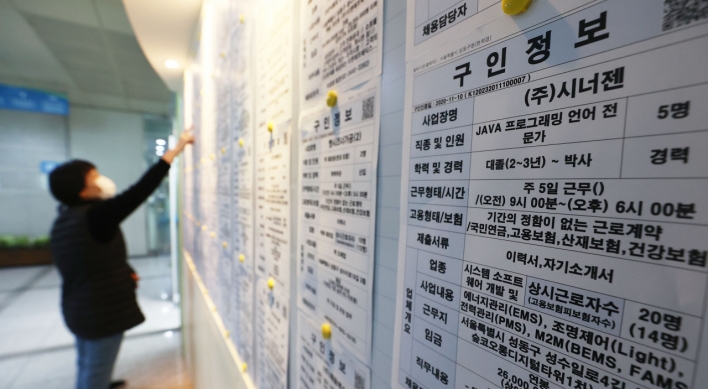
-
[News Focus] Foreign residents’ jobless rate soars to new record
SEJONG -- The novel coronavirus has undermined the job security of foreign nationals living here, government data has shown. According to the Justice Ministry and Statistics Korea, the unemployment rate for the expatriate population hit a record-high of 7.6 percent in 2020 since the government started compiling the data. Of the economically active expatriate population of 917,000, 69,500 were out of work last year. This contrasts with 5.5 percent in the jobless rate among foreigners in 2019,
Jan. 12, 2021
![[News Focus] Foreign residents’ jobless rate soars to new record](//res.heraldm.com/phpwas/restmb_idxmake.php?idx=652&simg=/content/image/2021/01/12/20210112000001_0.jpg&u=20210113114846)
-
S. Korea likely to outpace Italy in GNI per capita: BOK
South Korea is likely to overtake Italy in gross national income per capita as its economic growth rate fared well compared to the European economy, according to the Bank of Korea Tuesday. The nation’s GNI per capita last year is estimated to have decreased from $32,115 in 2019 to reach around $31,000 as its nominal gross domestic product growth rate hit zero amid the prolonged COVID-19 pandemic, officials said. However, South Korea’s GNI per capita is to outpace the Eu
Jan. 12, 2021
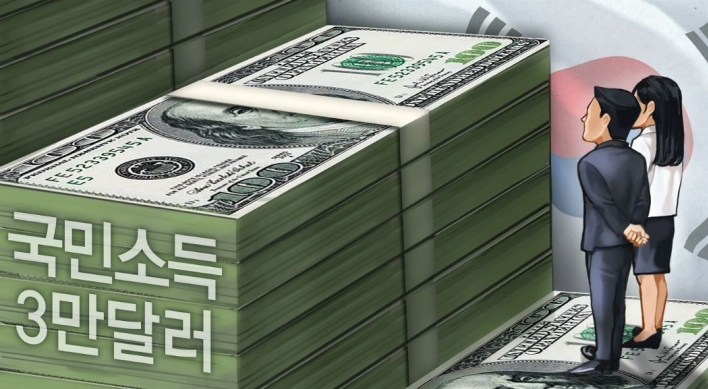
-
S. Korea to hold annual meeting with IMF on economy
South Korea will begin its annual meeting with the International Monetary Fund (IMF) this week on the country's overall economic situation and its response to the new coronavirus outbreak, the finance ministry said Tuesday. The ministry will hold video conferences with an IMF team, led by Andreas Bauer, Korea mission chief at the international organization, from Wednesday to Jan. 28, according to the Ministry of Economy and Finance. Every year, IMF delegations visit South Korea to discuss the
Jan. 12, 2021
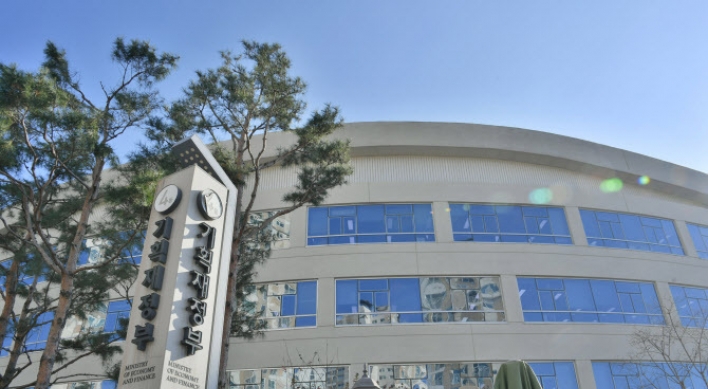
-
S. Korea to invest W125b in AI chips this year
South Korea's ICT ministry said Tuesday it will invest 125.3 billion won ($114.1 million) this year to support the development of neural processors, up 75 percent from last year. Neural processing units refer to high-performance and low-powered logic chips that specialize in artificial intelligence (AI) services, according to the Ministry of Science and ICT. The government placed big bets last year on next-generation chip technology, including neural processors, with a plan to spend 1 trillion
Jan. 12, 2021
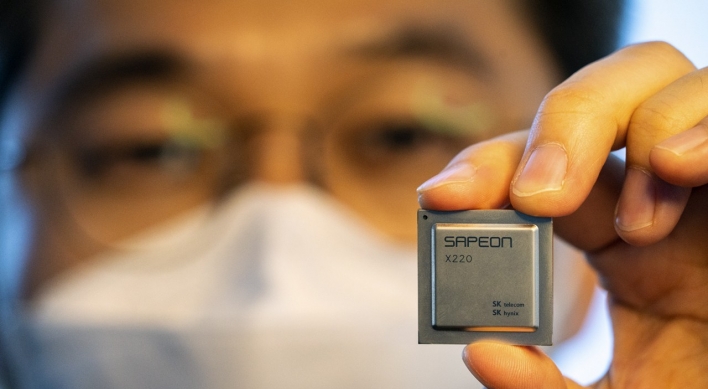
-
FDI pledges to S. Korea dip 11% in 2020 amid pandemic
Foreign direct investment (FDI) pledges to South Korea dipped 11 percent in 2020 from a year earlier, data showed Tuesday, as the unprecedented virus pandemic has dealt a harsh blow to business activities around the globe. Asia's No. 4 economy received $20.7 billion worth of FDI commitments last year, compared with $23.3 billion logged in 2019, according to the Ministry of Trade, Industry and Energy. The amount of investment that actually arrived here also dropped 17 percent over the cited per
Jan. 12, 2021
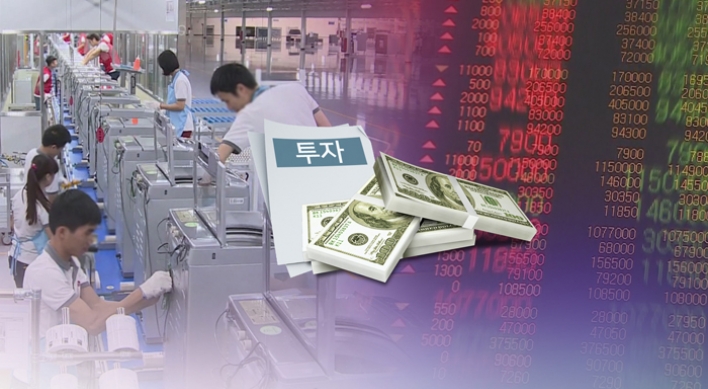





![[Herald Interview] 'Trump will use tariffs as first line of defense for American manufacturing'](http://res.heraldm.com/phpwas/restmb_idxmake.php?idx=644&simg=/content/image/2024/11/26/20241126050017_0.jpg&u=20241126161719)

![[Herald Review] 'Gangnam B-Side' combines social realism with masterful suspense, performance](http://res.heraldm.com/phpwas/restmb_idxmake.php?idx=644&simg=/content/image/2024/11/25/20241125050072_0.jpg&u=)
![[Health and care] Getting cancer young: Why cancer isn’t just an older person’s battle](http://res.heraldm.com/phpwas/restmb_idxmake.php?idx=644&simg=/content/image/2024/11/26/20241126050043_0.jpg&u=20241126145342)





![[News Focus] Nonregular jobs growth fastest in Moon strongholds](http://res.heraldm.com/phpwas/restmb_idxmake.php?idx=652&simg=/content/image/2021/01/14/20210114000001_0.jpg&u=20210114164343)












![[News Focus] Foreign residents’ jobless rate soars to new record](http://res.heraldm.com/phpwas/restmb_idxmake.php?idx=652&simg=/content/image/2021/01/12/20210112000001_0.jpg&u=20210113114846)



